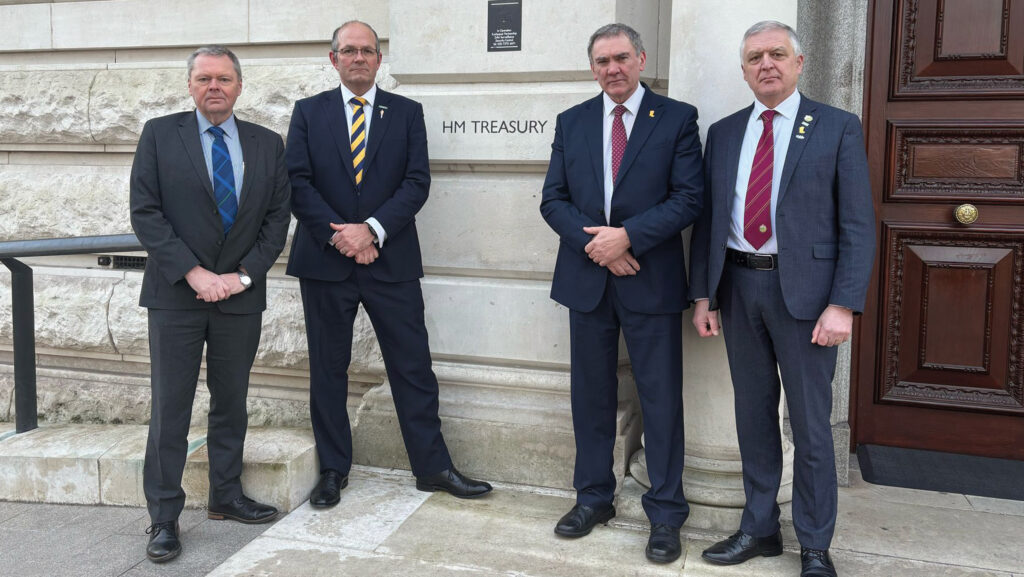NFU’s ‘clawback’ IHT proposal to Treasury could raise £686m
 From left: NFU
Scotland president
Andrew Connon,
NFU president Tom
Bradshaw, NFU Cymru
president Aled Jones
and Ulster Farmers’
Union president
William Irvine © NFU
From left: NFU
Scotland president
Andrew Connon,
NFU president Tom
Bradshaw, NFU Cymru
president Aled Jones
and Ulster Farmers’
Union president
William Irvine © NFU The NFU’s alternative approach to inheritance tax (IHT) reform, presented to the Treasury this week, could generate between £422m and £686m for the government, the organisation claims.
This, it says, would help raise the necessary funds for public finances while protecting family farms and reducing economic disruption.
On Tuesday (18 February) NFU president Tom Bradshaw and representatives from other farming organisations presented proposals for a “clawback” mechanism to exchequer secretary James Murray and Defra farming minister Daniel Zeichner.
See also: ‘Look us in the eye’ – NFU challenges chancellor on farm IHT
Under the proposed model, further details of which have now been released, assets qualifying for agricultural property relief (APR) and business property relief (BPR) would initially be exempt from IHT.
IHT would only become payable (or “clawed back”) if the assets were sold within seven years of the death of the business owner.
If a proportion of the assets were sold, IHT would become due on that share.
The tax could also be collected if the business or the assets ceased to be used for a purpose that qualifies for APR or BPR within seven-years – for example, if practical farming stopped.
The idea is to prevent the abuse of these reliefs for tax avoidance, while still allowing family businesses and farms to continue operating after the death of the owner.
The amount of money the government could recoup in this way would depend on the level of any tax-free threshold and the rate of IHT charged, says the NFU.
It estimates this system could raise between £422m and £686m, with a central estimate of £554m – which it points out is “7% more than the Treasury estimates its current proposal will raise”.
Assets
“Put simply, farmers don’t get money when they inherit, they get the farm, the business asset, and often the debt,” said Mr Bradshaw.
“Any money they do get, they get when they sell. So our suggestion is based on that premise.”
This would reduce the risk of farms being sold or broken up to pay IHT, which could harm national food security and local economies.
The NFU notes that the clawback mechanism is already used in several European countries, offering a balanced approach to tax collection while supporting rural economies.
Farming leaders are calling on the government to engage with the agricultural sector to explore this proposal and ensure that any reform to IHT reliefs does not undermine the stability of family-run farms or threaten UK food security.
Mr Bradshaw said: “There is still time for Treasury to review. I urge them to look at the proposal put to them by all the major farming organisations. It will raise the money needed.”
